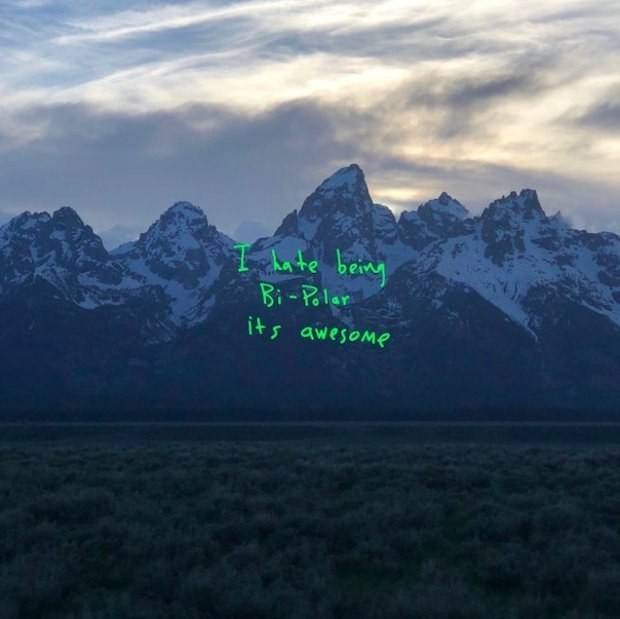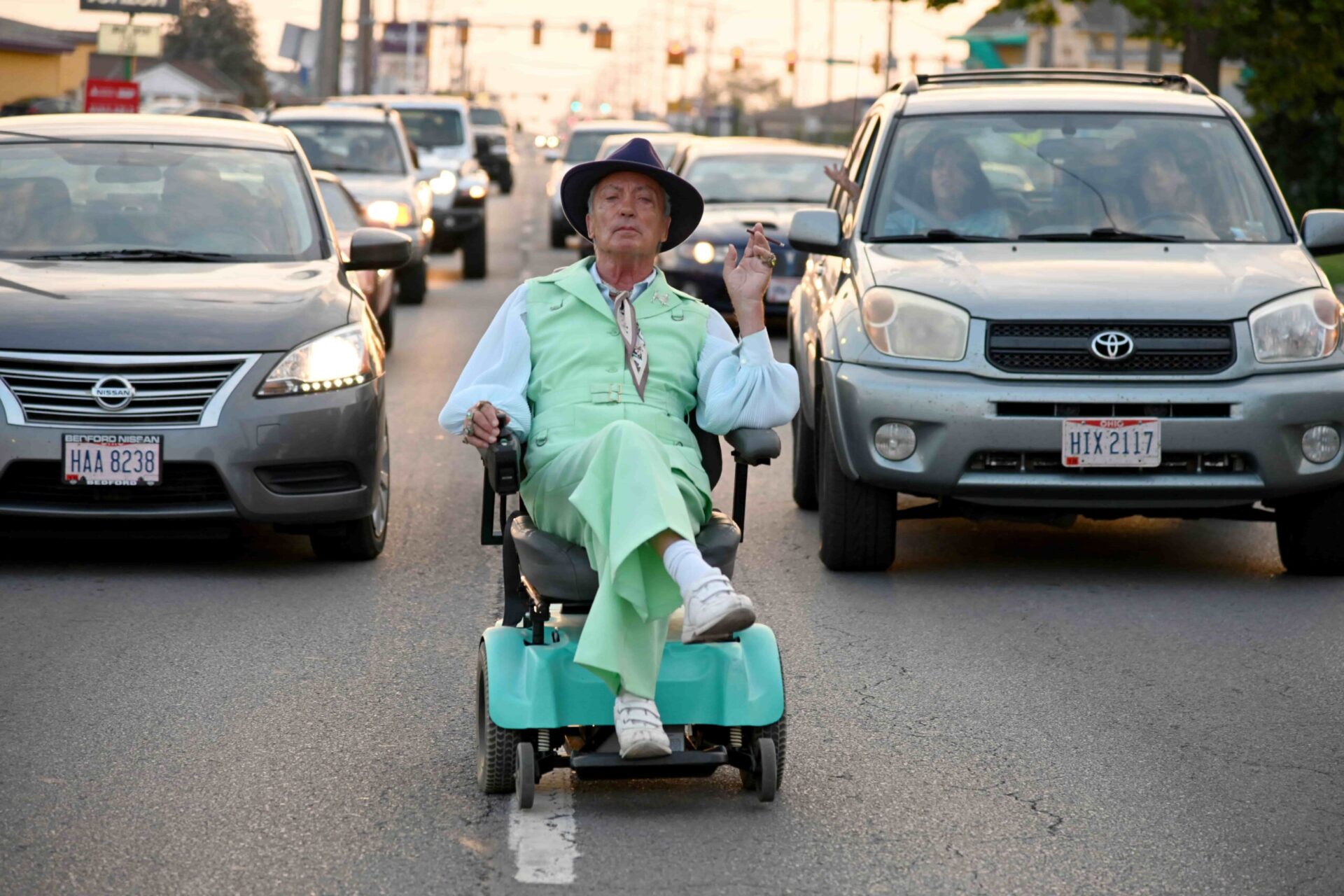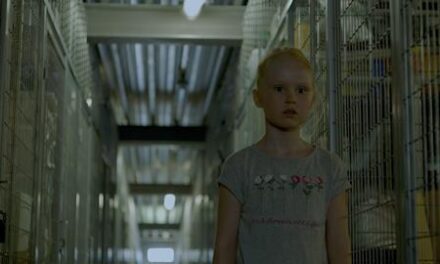In the 2017 movie, Split, there’s a character by the name of Dr. Karen Fletcher (Betty Buckley). She believed that Dissociative identity disorder (DID) that was diagnosed within the main character, Kevin Wendell Crumb (James McAvoy) was not only a coping mechanism for abuse, but something more than just an illness. In some instances, Kevin was able to change his body chemistry depending on what personality he was.
At the end of “Yikes,” Kanye West declares: “That’s my bipolar shit, what?
That’s my superpower, ain’t no disability
I’m a superhero! I’m a superhero!”
The man that was always looked upon as the outlier in music confirmed that he had an internal struggle. About 5.7 Million Americans are affected by Bipolar disorder. Still, throughout society, mental illness has a stigma attached to it. Perhaps, the bravery is West trying to own it, however, in an interview with Charlamagne Tha God, West states that he doesn’t seek therapy. Rather that he speaks to friends or random people and engage in conversation. With Ye, the audience is the earpiece. Creating is always a healing experience. In recent months, there’s also been a growing emphasis on tools like therapy. Artists have been more open in their utilization to sustain their mental health. At what point does West’s refusal become harmful? When is making music not the medicine? Eventually, the musical aspect is going to suffer.
Throughout the first track, “I Thought About Killing You,” there’s a haunting undercurrent of layered vocals by Francis and The Lights. West utilizes different pitches within his voice and intermittent auto-tuned singing to depict different personalities. The first part, West speaks in a spoken word cadence and with the beat switch, starts to rap. Here, you have an interesting concept of what is going on in West’s mind frame. Where the audience can maybe try to understand the tornadic activity that has been West’s life for the past two years.
There’s different levels of shock within this album. While in the first track, there’s a macabre, honest, and almost uneasy conversation that West’s personality is speaking to. Then, there are lines like in “Yikes” where West states: “Russell Simmons wanna pray for me too/I’ma pray for him ’cause he got #MeToo’d”
Kanye West is no stranger to controversial lyrics throughout his career. As far as that goes, there was still the talent level where people tried to overlook what he was saying. Much like the “roll out” before the album, West kicked the proverbial hornet’s nest with his comments on slavery. On Ye, there are some themes that are interesting, especially in terms of his marriage and what he’s gone through. There becomes a point where being controversial for the sake of it becomes a detriment. The album suffers because the focus is not where it needed to be.
Some tracks serve to contradict others. The Jeremiah-assisted, minimal 808-infused track, “All Mine,” West speaks of trying to control urges of infidelity – speaking about different types of women he could have. “Wouldn’t Leave,” the song that begins to bring the wall down in regards to West’s real agenda, paints a picture of a remorseful person who was scared of the love of his life leaving him. West’s character is to push buttons and he’s actually trying to show some sort of remorse. However, it’s just within his family and not a broader term of recollection.
The most complete track on the album, “Ghost Town,” serves to highlight the talent around West. The combination of Shirley Ann Lee’s “Someday” and Vanilla Fudge’s “Take Me For A Little While” reminds you why West’s acumen for using samples is a gift. In fact, production is where West excels on this album. The little nuances help to keep him grounded, while the source material meanders much like his previous interviews. There’s a point to the story, but it will take a little bit to get there.
If you really think about it, West has primed us for this type of incomplete album. 2016’s The Life of Pablo, West alluded to a “living album” that he would keep making edits on long after the release date. When the album was released on February 14th, there were parts of songs missing or artists with vocal parts that weren’t even added. Take a look at the first incarnation of “Wolves.” Like that song, there are parts in Ye that don’t get the proper space to grab you emotionally. “No Mistakes” begins to speak about West’s windfall with debt and dirt on his name, but is over in two minutes.
Ye also had a similar fate. West noted that the album was “re-recorded” after his infamous TMZ appearance and G.O.O.D. artist, 070 Shake finishing her vocals for “Ghost Town” on release day. With albums like The College Dropout and even 808s and Heartbreaks, there was a methodical, precise chord that they had. We are talking about an artist who went through 12 different kick drums, then went to Timbaland for help on the drums for “Stronger.”
The sad thing is due to the haste that went into making this album, there was a really dope concept that was left on the table. If Kanye would have given himself time, he could have went into the themes of the dual nature of bipolarism. Perhaps, not a double album, but more than seven songs. It could have been a teachable moment for him and brought awareness to the issue. Instead, he elected to create the controversy and bombast a month before the album
What you have are a collection of songs that don’t feel complete. It’s like that term paper that you add a few more sentences to in order for it to feel full. Even with the seven-song standard, that’s an issue. Especially for an artist that used to pride himself on having a concept and executing no matter what amount of time it took him to get there. The novelty of the album a week/seven song constraint loses it’s muster when the architect can’t deliver on the promise.













